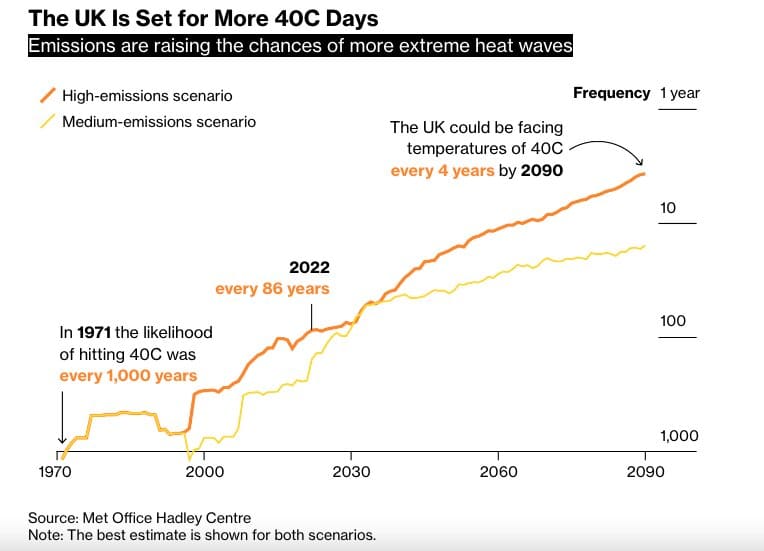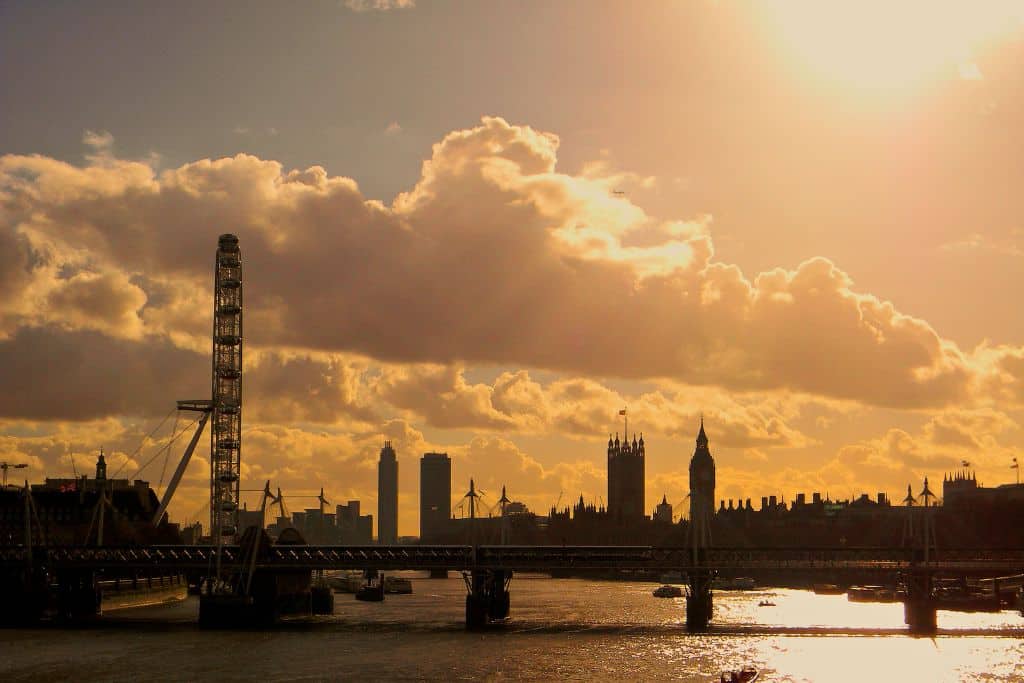The UK government declared the first-ever national emergency red heat alert as an exceptional heatwave is expected to bake London and other parts of southeast England on Monday and Tuesday.
—
Ahead of an unprecedented heatwave expected to hit the country, the UK Health Security Agency (UKHSA) announced Level 4 Heat-health Alert for Monday and Tuesday, meaning that “illness and death may occur among the fit and healthy, and not just in high-risk groups.”
The heatwave expected to bake London and parts of central, northern, and southeastern England – with temperatures likely to reach highs of 40C (104F) – has been described as “absolutely unprecedented”. Extreme measures across several public services were decided in an emergency Cobra committee meeting with UK ministers on Saturday afternoon.
According to The Guardian, schools across the country are set to remain closed while the NHS has cancelled operations and the Network Rail announced speed restrictions on train services amid fears of buckled rails. Unions across the country are calling for legal protection of workers, such as flexible working and travel arrangements, longer breaks, and relaxed dress codes.
You Might Also Like: Summer Heatwave in Europe Arriving Far Earlier Than Expected
According to a statement issued by the Met Office – UK’s national weather service – the London heatwave is undeniably connected to global warming. “Climate change has already influenced the likelihood of temperature extremes in the UK. The chances of seeing 40C days in the UK could be as much as 10 times more likely in the current climate than under a natural climate unaffected by human influence.” – the statement reads. “The likelihood of exceeding 40C anywhere in the UK in a given year has also been rapidly increasing, and, even with current pledges on emissions reductions, such extremes could be taking place every 15 years in the climate of 2100.”

Image: The frequency of heatwaves in the UK is expected to rise as emissions increase
The UK has one of the lowest rates of air conditioning in Europe, with only 1% of buildings having a fixed cooling system and only about 3% to 5% equipped with a portable cooling system. According to a recent study from the Department for Business, Energy and Industrial Strategy, by 2035, around 20% of London homes will require air conditioning to battle the increasing heatwaves. By 2075, around half of the city’s buildings will.
The unprecedented heatwave also puts immense pressure on the next prime minister to improve the country’s resilience to climate change and accelerate the net-zero transition.
You Might Also Like: Countries Revive Coal Plants As Devastating Heatwave in Europe Fuels Earliest-Ever Fire Season


















